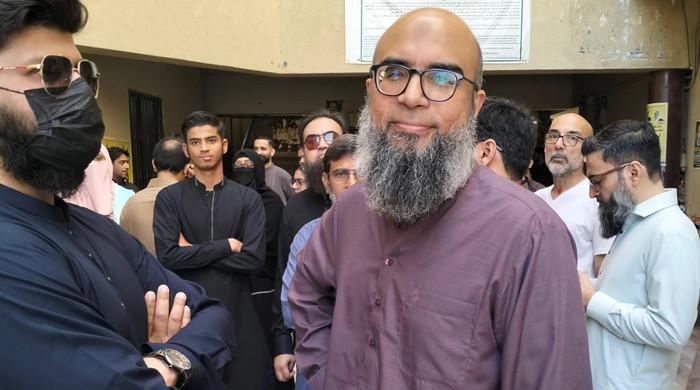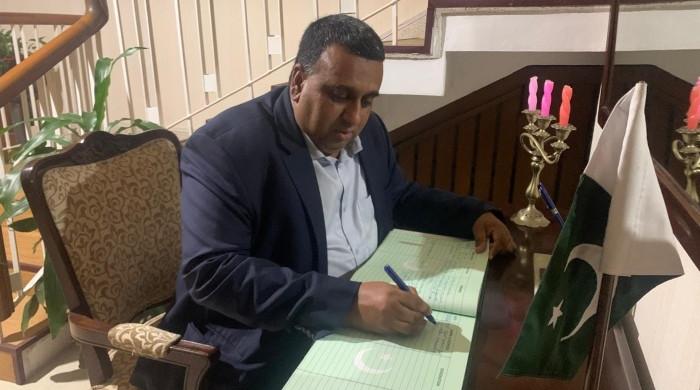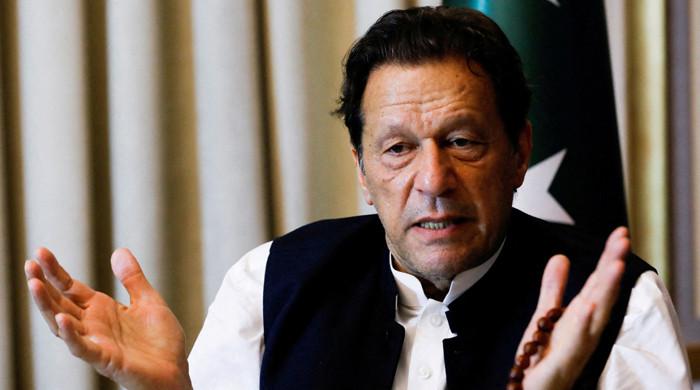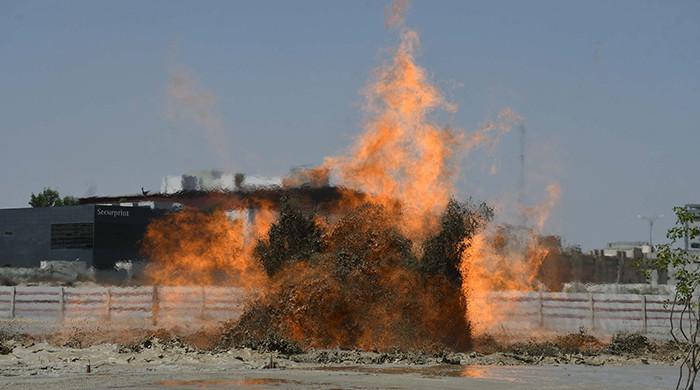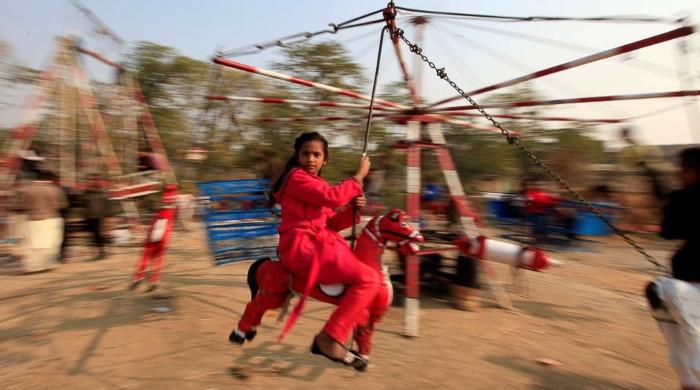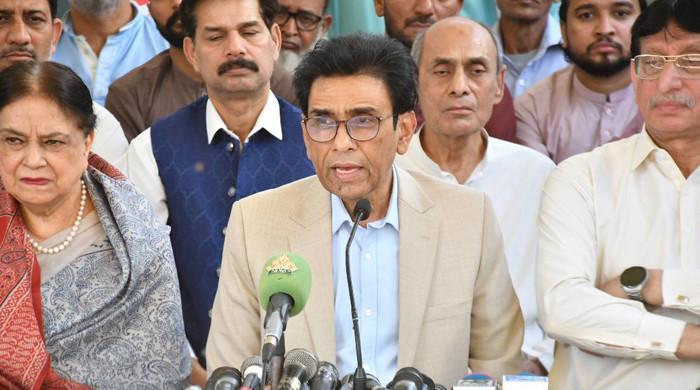'World knows of sacrifices we made', ambassador Akram says as Pakistan seeks political settlement in Afghanistan
Akram says Pakistan engaging with Afghan leadership to seek political settlement; slams India for denying request to address UNSC meeting
August 16, 2021
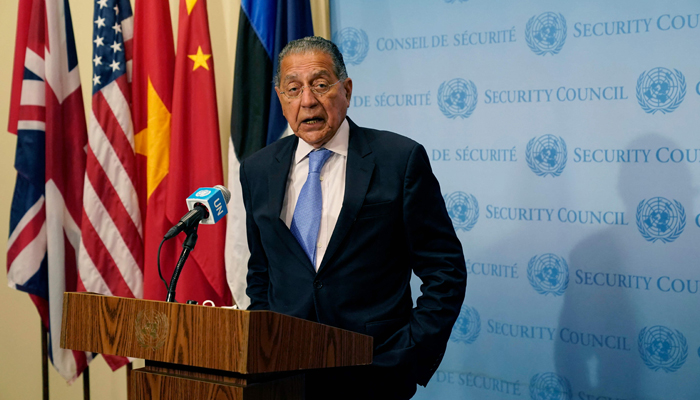
- Ambassador Munir Akram says Pakistan engaging with Afghan leadership to seek political settlement.
- Lambastes India for denying request to address UN Security Council meeting.
- "We are not surprised by India's anti-Pakistan partisanship," he says.
- UNSC calls for talks to create a new government in Afghanistan and an end to fighting.
NEW YORK: The world knows of the sacrifices we have made, Permanent Representative of Pakistan to the United Nations Munir Akram said Monday as he drew the international community's attention towards Islamabad's efforts for sustainable peace in Afghanistan after the Taliban took over the country.
The Taliban entered the capital Kabul on Sunday and President Ashraf Ghani left Afghanistan, the culmination of a rapid offensive by the group to take back the country 20 years after they were ousted by a US-led invasion.
Ambassador Akram's comments came during his press briefing at the UN after India — being the chair of the United Nations Security Council — had denied Pakistan the opportunity to speak at the council's meeting on Afghanistan.
This was not the first time that India had done such an act, as last time almost 10 days back, New Delhi had prohibited Pakistan from addressing the council — while Ambassador and Permanent Representative of Afghanistan to the United Nations Ghulam M Isaczai levelled allegations against Islamabad.
"India's partisan and obstructionist actions are an illustration of the hatred for Pakistan which exists in India," Pakistan's representative to the UN said.
India plans to continue the conflict in Afghanistan and sponsor terrorism against Pakistan from the Afghan land, he said and pointed out that once peace is attained, this threat could be neutralised.
"We are not surprised by India's anti-Pakistan partisanship. This confirms Pakistan's long-held contention that India does not deserve to be on the Security Council, much less to aspire to become a permanent member of the council," Akram said.
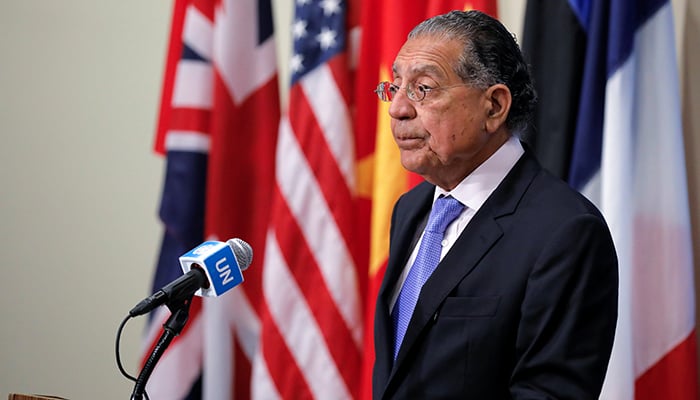
It is in violation of UNSC's resolutions on Jammu and Kashmir and is in the process of conducting a campaign of genocide against the Kashmiri people, with 900,000 troops deployed in the occupied territory, Akram noted.
'Representative of defunct regime invited to speak'
While blocking Pakistan and other neighbours of Afghanistan from addressing the council, the representative of a now-defunct regime was invited to speak to the council, Akram highlighted.
"There was considerable pathos in this spectacle."
"Ambassador Isaczai is an esteemed colleague but the person who appointed him (President Ashraf Ghani) here recently has fled Afghanistan to cause a betrayal from some of his own ministers and the army chief," he said.
Akram pointed out that it was unclear on whose behalf ambassador Isaczai participated in the Security Council's meeting on Afghanistan.
The ambassador said if he were allowed to speak to the council, he would have first of all informed meeting of the National Security Committee of Pakistan, chaired by Prime Minister Imran Khan, where the overall situation in Afghanistan was discussed.
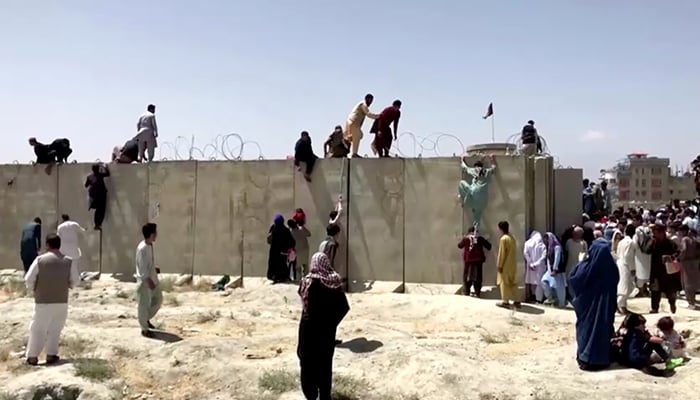
Pakistan has been a victim of the decades-long conflict in Afghanistan and we desire peace and stability in our neighbourhood, he said, adding: "The world knows of the sacrifices that we have made."
The ideal time to end the conflict through negotiations might have been when the US and NATO troops were at maximum military strength in Afghanistan, he said.
Continuation of foreign military presence for a longer duration now, would not have yielded any positive outcome, Akram said.
'Pakistan making active efforts'
"Pakistan is making active efforts to promote an inclusive political settlement in Afghanistan," he said, as he highlighted Islamabad was actively engaging with the war-torn country's leadership for lasting peace.
Akram said Pakistan had invited the leaders of several political parties and groups in Afghanistan — representing all the multi-ethnic groups — apart from the Pashtuns.
They are present in Islamabad and have met with Foreign Minister Shah Mahmood Qureshi and with Pakistan's leadership today, Akram said.
They have promised to engage continuously with the Taliban, and to try to evolve an inclusive Afghan government, the ambassador said.
"Pakistan will work with them. And with the Taliban representatives to advance this objective and objective of an inclusive political government, which is important for durable peace and stability in Afghanistan.
UNSC pushes for talks to form new government
Following Akram's presser, the UN Security Council called for talks to create a new government in Afghanistan and an end to fighting and abuse after UN chief Antonio Guterres warned of "chilling" curbs on human rights and mounting violations against women and girls.
The 15-member council issued a statement, agreed by consensus, after Guterres appealed to the body to "use all tools at its disposal" to suppress a global terrorist threat from Afghanistan and guarantee respect for human rights.
"We cannot and must not abandon the people of Afghanistan," Guterres told the Security Council.
The Security Council stressed the importance of combating terrorism in Afghanistan to ensure other countries were not threatened or attacked and said: "neither the Taliban nor any other Afghan group or individual should support terrorists operating on the territory of any other country."
It called for an immediate cessation of all hostilities and the establishment, through inclusive negotiations, of a new government that should include women.
Russian UN Ambassador Vassily Nebenzia said the Taliban's quick defeat of government forces "took everyone by surprise."
"Currently we believe that there is no point in panicking... a widespread bloodbath amongst civilians has been avoided. We urge all Afghan parties to refrain from hostilities and to foster a settlement peacefully," he said.





